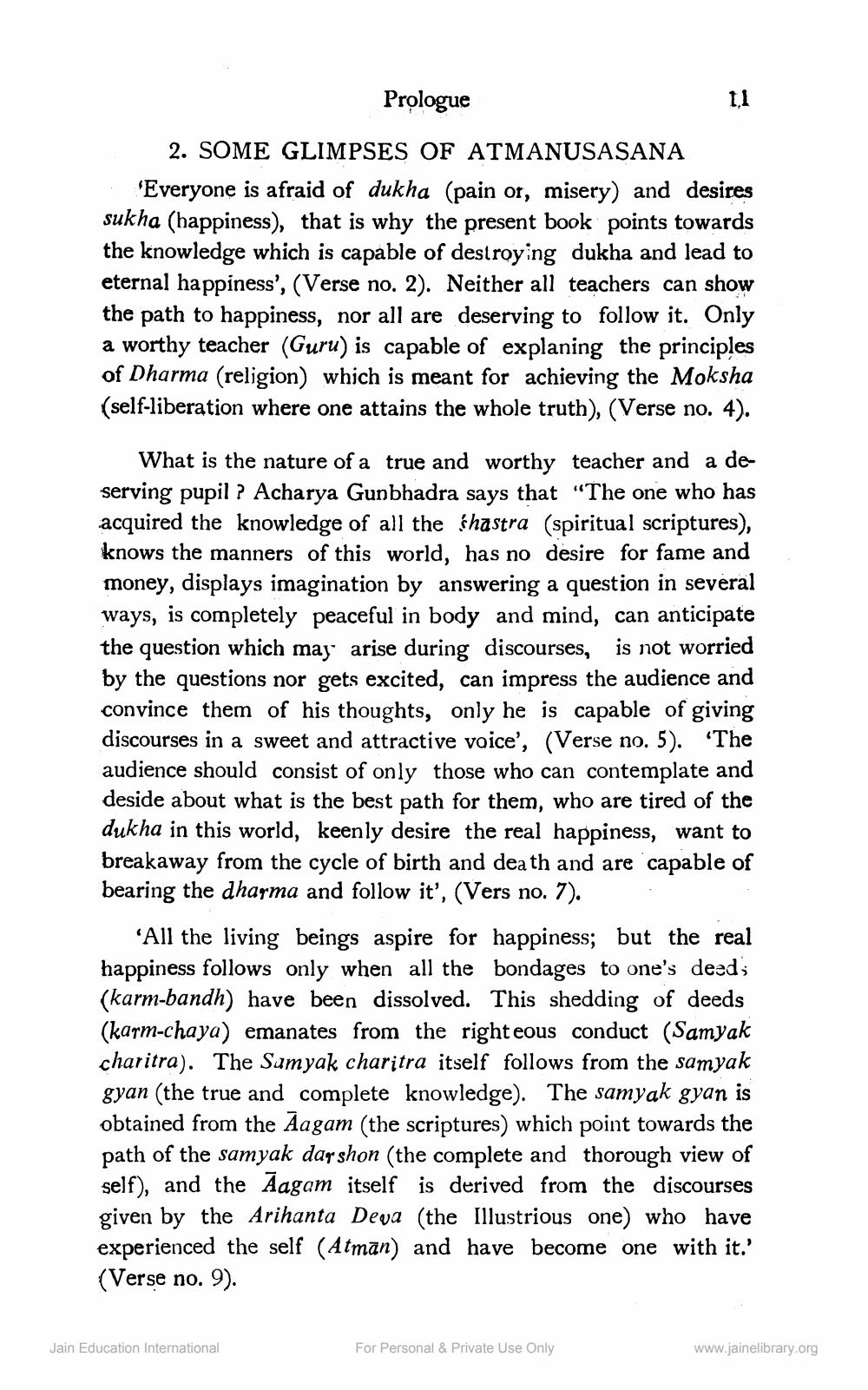________________
Prologue
2. SOME GLIMPSES OF ATMANUSASANA
'Everyone is afraid of dukha (pain or, misery) and desires sukha (happiness), that is why the present book points towards the knowledge which is capable of destroying dukha and lead to eternal happiness', (Verse no. 2). Neither all teachers can show the path to happiness, nor all are deserving to follow it. Only a worthy teacher (Guru) is capable of explaning the principles of Dharma (religion) which is meant for achieving the Moksha (self-liberation where one attains the whole truth), (Verse no. 4).
What is the nature of a true and worthy teacher and a deserving pupil? Acharya Gunbhadra says that "The one who has acquired the knowledge of all the shastra (spiritual scriptures), knows the manners of this world, has no desire for fame and money, displays imagination by answering a question in several ways, is completely peaceful in body and mind, can anticipate the question which may arise during discourses, is not worried by the questions nor gets excited, can impress the audience and convince them of his thoughts, only he is capable of giving discourses in a sweet and attractive voice', (Verse no. 5). "The audience should consist of only those who can contemplate and deside about what is the best path for them, who are tired of the dukha in this world, keenly desire the real happiness, want to breakaway from the cycle of birth and death and are capable of bearing the dharma and follow it', (Vers no. 7).
1,1
'All the living beings aspire for happiness; but the real happiness follows only when all the bondages to one's deeds (karm-bandh) have been dissolved. This shedding of deeds (karm-chaya) emanates from the righteous conduct (Samyak charitra). The Samyak charitra itself follows from the samyak gyan (the true and complete knowledge). The samyak gyan is obtained from the Aagam (the scriptures) which point towards the path of the samyak darshon (the complete and thorough view of self), and the Aagam itself is derived from the discourses given by the Arihanta Deva (the Illustrious one) who have experienced the self (Atman) and have become one with it.' (Verse no. 9).
Jain Education International
For Personal & Private Use Only
www.jainelibrary.org




